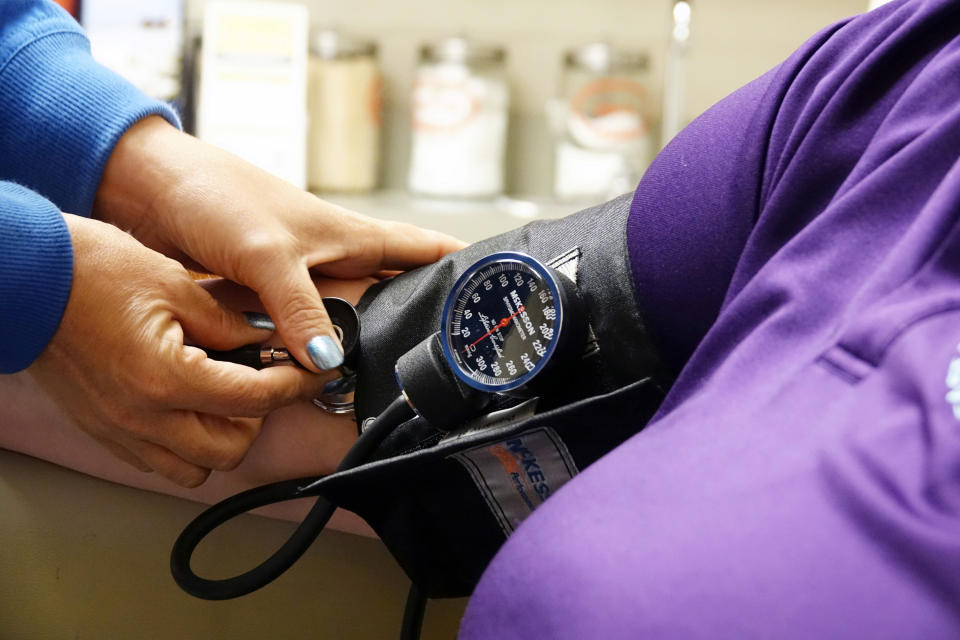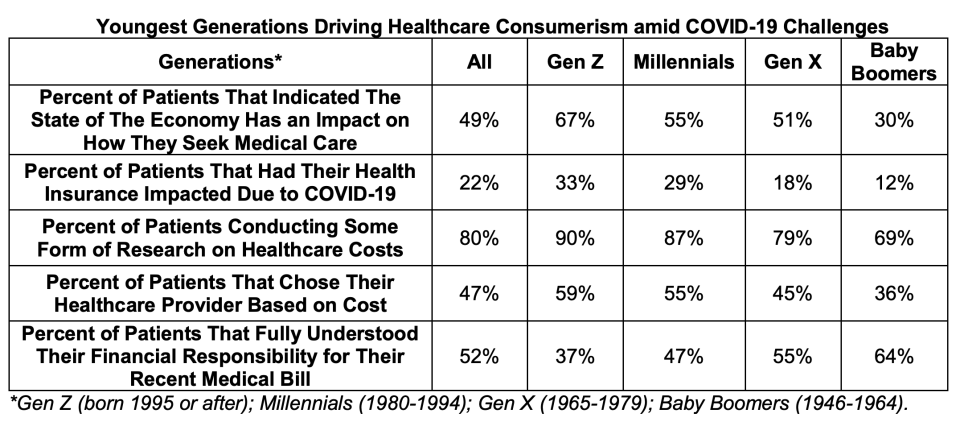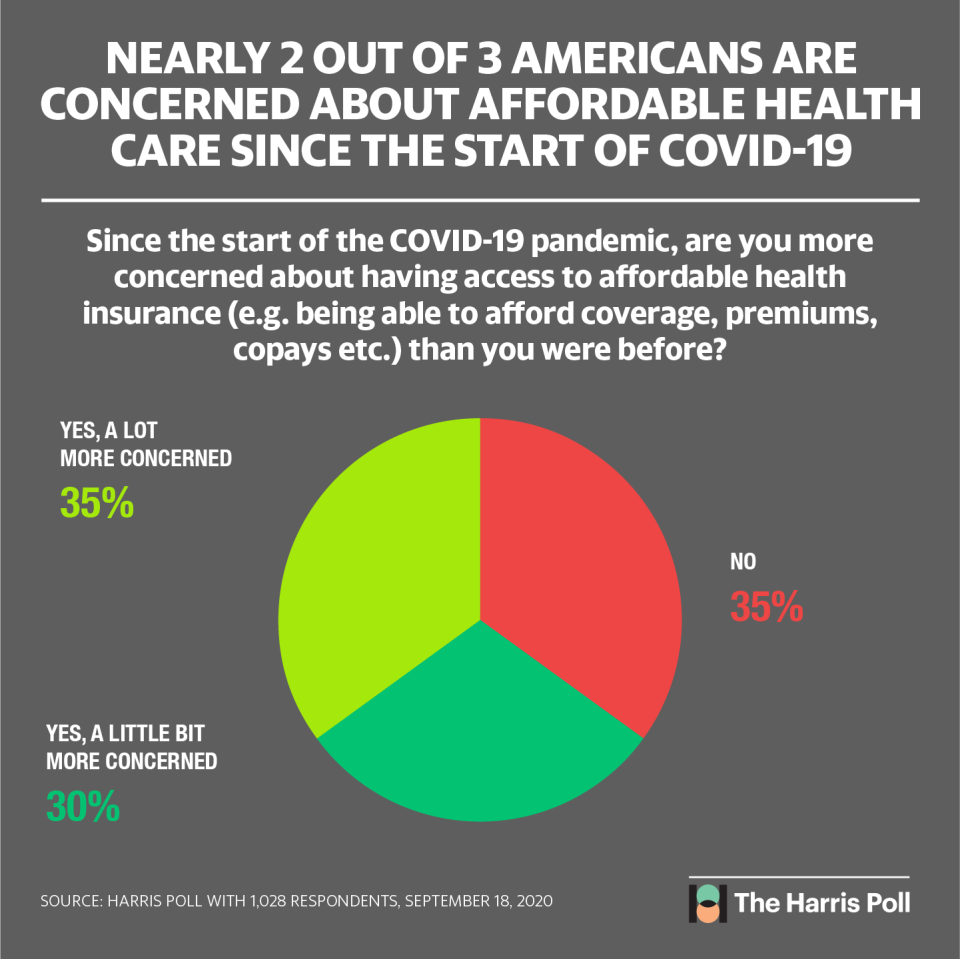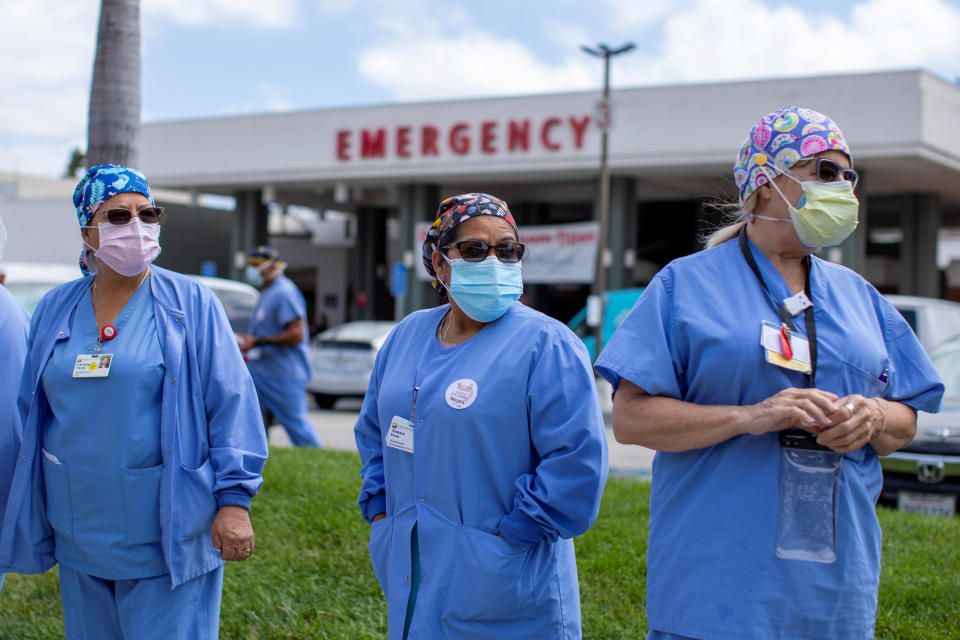How the coronavirus impacts whether or not patients seek care for other health problems
The coronavirus pandemic, which has impacted American life in ways both big and small, has impacted whether or not people seek medical care for other ailments.
According to a new survey of more than 3,000 patients from TransUnion Healthcare, nearly six in 10 patients (59%) deferred non-coronavirus-related medical care over the past six months. It continues a trend seen soon after COVID-19 infections hammered the U.S, which led many medical institutions to shut down elective procedures and curtail outpatient care.
“It’s a big problem,” Jonathan Wiik, principal of healthcare strategy at TransUnion Healthcare, told Yahoo Finance.
“And if you noticed, there are radio and TV ads saying, ‘Please come in if you have something wrong with you, don’t be scared,’” he said. “I’ve never seen commercials like that before in my career. It’s kind of an interesting time.”
At one point early into the pandemic, outpatient visits were down over 60%. By delaying medical care, patients put themselves at risk for not detecting conditions like heart disease, diabetes, cancer, and other illnesses that can be detected through preventable visits.
“They just said, ‘I’m not going to go at all,’” Wiik said, “which is actually really dangerous for their health. And I would argue their finances, too, eventually.” He added that ailing patients can see their conditions “snowball really quickly with certain chronic diseases.”
‘A health literacy issue in America’

Chronic diseases already cost the U.S. economy trillions of dollars a year, according to the Centers for Disease Control and Prevention (CDC). In fact, 90% of the nation’s $3.5 trillion in health care expenditures are for people with chronic conditions like chronic heart and lung conditions — populations hurt by the COVID-19 outbreak that needed “outreach to pull them back in,” according to Wiik.
Health care institutions and insurance companies have launched ad campaigns encouraging people to remember to go in for preventive visits.
But the TransUnion survey also found that 49% of patients indicated that the state of the economy had at least somewhat of an impact on seeking medical care, a 7 percentage point jump from 2019.

Among age groups, Gen Z and Millennials said the pandemic had a major impact on their health coverage, at 33% and 29%, respectively. In comparison, only 18% of Gen X and 12% of Baby Boomers reported coronavirus-related effects.
An estimated 12 million people have lost their employer-sponsored health care since the start of the pandemic earlier this year. According to recent data, 43% of working Americans lacked stable health care as coronavirus pandemic spread, costing unemployed workers their employer-sponsored coverage.
And as Americans struggle with the financial fallout of COVID-19, their approach to tackling medical care has also shifted. TransUnion found that only 52% of patients fully understand their financial responsibility for recent medical bills.

Wiik likened the effect to consumers’ relationships with their housing payments.
“You don’t really understand your mortgage very well because you signed it, or your rent agreement, months ago or years ago, and if someone were to ask you questions about the terms of it...that stuff becomes much more fuzzy,” he said.
“The same happens in health care. How much is your deductible? How much have you met this year?,” What’s your co-insurance?” the analyst asked. “So those are the things you don’t really think about until you use them. And that’s why I think there’s so much confusion on the consumer side.”
The numbers were highest among Baby Boomers and steadily decreased with each younger generation, something Wiik described as a “health literacy issue in America.”
‘What if two-thirds of our paycheck went away?’

Not only is delaying medical care detrimental to people’s health, it also can have devastating effects on hospital and health care revenues.
A report from the American Hospital Association (AHA) estimated a loss of $202.6 billion for America’s hospitals and health systems between March 1 and June 30 of this year, translating into a financial hit of nearly $51 billion each month.
And a TransUnion analysis found that over 500 hospitals experienced visitor declines between 32%-60%, just in the month of March alone, largely because hospitals reportedly earn approximately $700 more on each elective admission than on each emergency department admission. That prompted staff reductions and other operational shutdowns.
“A lot of hospitals were like, ‘we’re just going to have to take a break. We’re going to furlough you until this stuff gets better and we can start seeing through,’” Wiik told Yahoo Finance. “That’s the hospital experience. On the primary care experience, if they aren’t set up with an infrastructure to be virtual, a lot of those practices shut down and may not ever open again.”
Adriana Belmonte is a reporter and editor covering politics and health care policy for Yahoo Finance. You can follow her on Twitter @adrianambells.
READ MORE:
43% of working Americans lacked stable health care as coronavirus pandemic spread
Read the latest financial and business news from Yahoo Finance
Follow Yahoo Finance on Twitter, Facebook, Instagram, Flipboard, LinkedIn, YouTube, and reddit.
